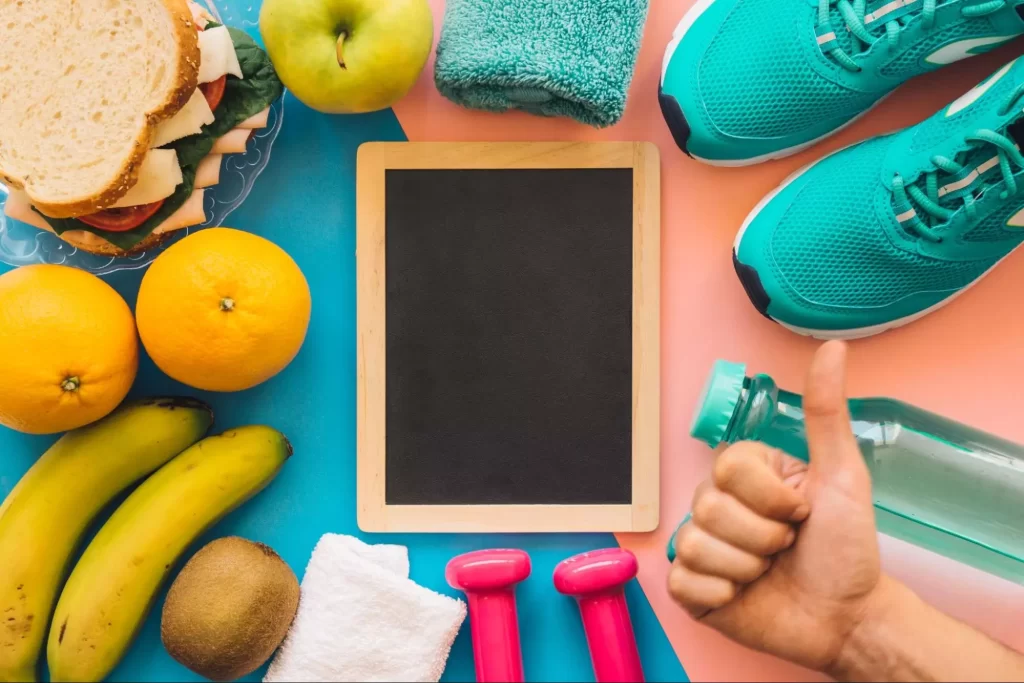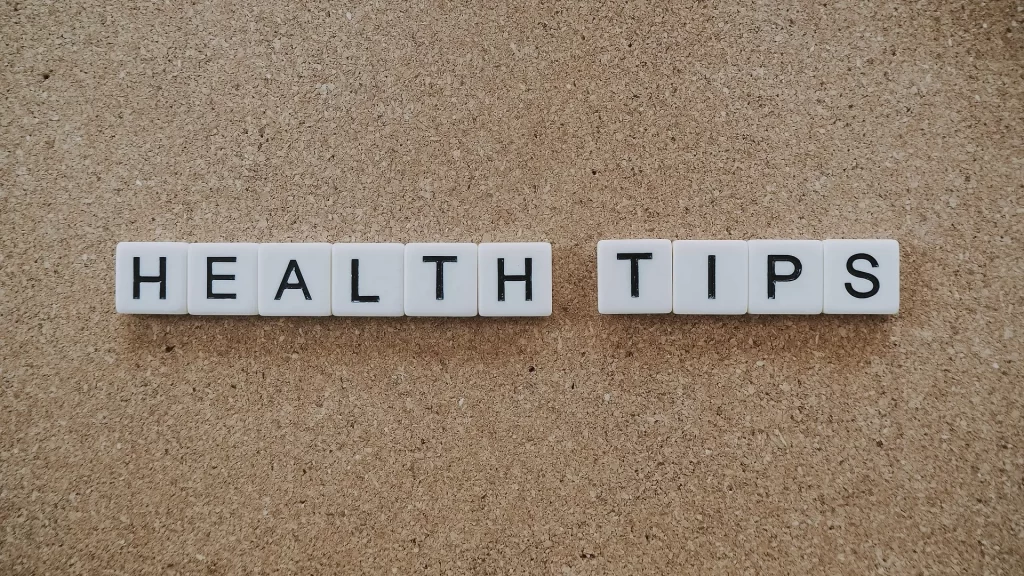Effective Health and Fitness Tips for Beginners
Hasan
02 Feb, 2025

Table of Contents
Introduction
Embarking on a health and fitness journey can be both exciting and overwhelming, especially if you’re new to the world of wellness. Whether you’re aiming to lose weight, increase strength, or simply improve your overall well-being, it’s important to start with a solid foundation. In this article, we’ll explore effective health and fitness tips specifically tailored for beginners. By following these tips, you’ll be well on your way to achieving your goals and enjoying a healthier lifestyle.

What is Health and Fitness?
Health and fitness refer to the overall well-being and physical condition of an individual. It encompasses various aspects of a person’s life, including their physical, mental, and social well-being.
Health refers to the state of being free from illness, injury, or disease. It involves maintaining a balanced and harmonious functioning of the body and mind. Good health is essential for individuals to lead a fulfilling and active life. Fitness, on the other hand, focuses on physical abilities and the capacity to perform various physical activities. It involves strength, endurance, flexibility, and overall cardiovascular fitness. Fitness is achieved through regular exercise, proper nutrition, and a healthy lifestyle. Both health and fitness are closely interconnected. Engaging in regular physical activity and maintaining a balanced diet not only improves physical fitness but also promotes overall health.
It can help prevent chronic diseases, boost energy levels, improve sleep, and increase longevity. Promoting health and fitness involves adopting healthy habits such as engaging in regular exercise routines. And also eating a nutritious diet, managing stress effectively, getting enough sleep, and avoiding harmful substances like tobacco and excessive alcohol consumption. It is important to note that health and fitness are individualized concepts, as each person’s needs and goals may vary. Therefore, it is recommended to consult with healthcare professionals, fitness trainers. Nutritionists to develop personalized plans that cater to specific health and fitness goals.

Setting Realistic Goals
When starting your health and fitness journey, it’s crucial to set realistic goals. Keep in mind the following advice:
- Start small: Begin with achievable targets to build momentum and confidence.
- Be specific: Define clear objectives like losing a certain amount of weight or completing a specific workout routine.
- Set a timeline: Establish deadlines to stay motivated and track your progress.
Incorporating Physical Activity
Regular exercise is key to improving your fitness level. Consider these suggestions to get started:
- Choose activities you enjoy: Engage in physical activities that you find fun and exciting, such as dancing, swimming, or hiking.
- Start with low-impact exercises: Begin with gentle exercises like brisk walking or cycling to avoid putting excessive strain on your body.
- Gradually increase intensity: As your fitness improves, gradually challenge yourself by adding more intense workouts to your routine.

Adopting a Balanced Diet
A healthy diet plays a vital role in supporting your fitness journey. Take note of the following recommendations:
- Focus on whole foods: Incorporate plenty of fruits, vegetables, lean proteins, whole grains, and healthy fats into your meals.
- Stay hydrated: Drink an adequate amount of water throughout the day to stay hydrated and maintain optimal bodily functions.
- Limit processed foods: Minimize your intake of processed snacks, sugary beverages, and foods high in saturated fats and added sugars.

Understanding Rest and Recovery
Rest and recovery are crucial for your overall well-being. Consider these aspects:
- Get enough sleep: Aim for 7-9 hours of quality sleep each night to allow your body to repair and recharge.
- Listen to your body: Pay attention to any signs of fatigue or soreness and take rest days as needed to prevent injuries and burnout.
- Incorporate relaxation techniques: Practice stress management techniques such as meditation, deep breathing, or yoga to reduce stress levels.

Here are 10 healthy foods that you can incorporate into your diet
Presenting a selection of nutritious and delicious healthy foods that can help you maintain a balanced diet and support your overall well-being.Below are the details of 10 healthy foods:
- Blueberries: Packed with antioxidants, vitamins, and fiber, blueberries are a nutritious fruit that supports brain health and boosts the immune system.
- Salmon: A great source of omega-3 fatty acids, protein, and vitamin D, salmon is a heart-healthy food that promotes brain function and reduces inflammation.
- Spinach: Loaded with vitamins, minerals, and antioxidants, spinach is a leafy green vegetable that supports bone health, aids digestion, and boosts the immune system.
- Quinoa: Considered a superfood, quinoa is a protein-rich grain that contains essential amino acids, fiber, and minerals. It provides sustained energy and supports healthy digestion.
- Greek Yogurt: High in protein and probiotics, Greek yogurt is a nutritious dairy product that promotes gut health, supports muscle growth, and provides calcium.
- Almonds: Packed with healthy fats, fiber, and antioxidants, almonds are a satisfying snack that supports heart health, controls blood sugar, and provides essential nutrients.
- Avocado: Rich in healthy fats, fiber, and vitamins, avocados are a versatile fruit that supports heart health, aids digestion, and provides anti-inflammatory properties.
- Sweet Potatoes: A nutrient-dense root vegetable, sweet potatoes are a great source of fiber, vitamins A and C, and antioxidants. They support eye health, boost immunity, and regulate blood sugar.
- Chickpeas: High in protein, fiber, and minerals, chickpeas are legumes that support digestion, control appetite, and promote stable blood sugar levels.
- Broccoli: Packed with vitamins, minerals, and antioxidants, broccoli is a cruciferous vegetable that supports bone health, aids in detoxification, and boosts the immune system.
Incorporating these foods into your meals can contribute to a well-rounded and nutritious diet. Remember to enjoy a variety of foods from different food groups to ensure you receive a wide range of essential nutrients.
Conclusion
Embarking on a health and fitness journey as a beginner may seem daunting. But with the right approach and mindset, it can be an exciting and transformative experience. Remember to set realistic goals, incorporate physical activity, adopt a balanced diet, and listen to your body throughout the process. By implementing these effective tips, you’ll be well on your way to achieving your health and fitness goals. Keep yourself inspired, be consistent, and have fun while you work toward becoming healthier!
Frequently Asked Questions
How often should I exercise as a beginner?
It’s recommended to start with three to four exercise sessions per week, gradually increasing the frequency as you build stamina and endurance.
Can I lose weight without strict dieting?
Yes, you can lose weight by making healthier food choices and creating a calorie deficit through a combination of exercise and portion control.
To Get More Healthy Tips
Click here
